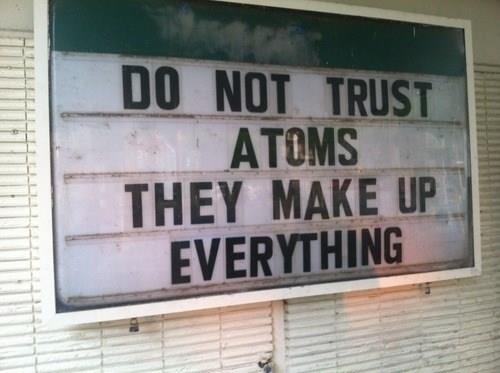Or do they?
Christians like myself, along with religious believers of all stripes insist this is not the case. Skeptics insist on empirical evidence, which they claim the faithful lack. The majority of humanity hang on tenaciously to their belief that something more than space, time, and matter exists. The question is whether their beliefs have a solid foundation, or are they just persisting in pre – scientific superstitions?
The skeptics’ mantra is: observable, testable, repeatable. They dismiss the philosophical wisdom of the ages as milk and water. They compare faith in deity with belief in the Tooth Fairy or the Boogeyman, if not the Flying Spaghetti Monster.
The Cosmos is all that is or was or ever will be. ~ Carl Sagan
William Dembski offers an alternative explanation. In Being As Communion, he contends that the universe is built from information rather than mere waves and particles.
To exist is to be in communion, and to in communion is to exchange information. According, the fundamental science, indeed, the science that needs to ground all other sciences, is a theory of communication, and not, as is widely supposed, an atomistic, reductionistic, and mechanistic science of particles or other mindless entities, which then need to be built up to ever greater orders of complexity by equally mindless principles of association, known as natural laws or algorithms or emergent properties or principles of self – organization. ~ William Dembski
If Dembski is correct, this has implications for the way we see reality. If the fundamental stuff of the universe is information, then the universe certainly points beyond itself to an intelligent personal Creator. From nothing nothing comes.
Something cannot come from nothing. To claim that something can come into being from nothing is worse than magic, when you think about it. When a magician pulls a rabbit out of a hat, at least you’ve got the magician – not to speak of the hat! ~ William Lane Craig
If we should be skeptical of the claim that the matter could not have spontaneously popped into existence, we should certainly be skeptical of information arising without a mind. If it turned out that William Dembski is right, it would be another nail in the coffin a materialist atheism. I intend to examine Dembski’s claims in Being As Communion over the course of a series. I encourage the curious to join me over the next few posts.
